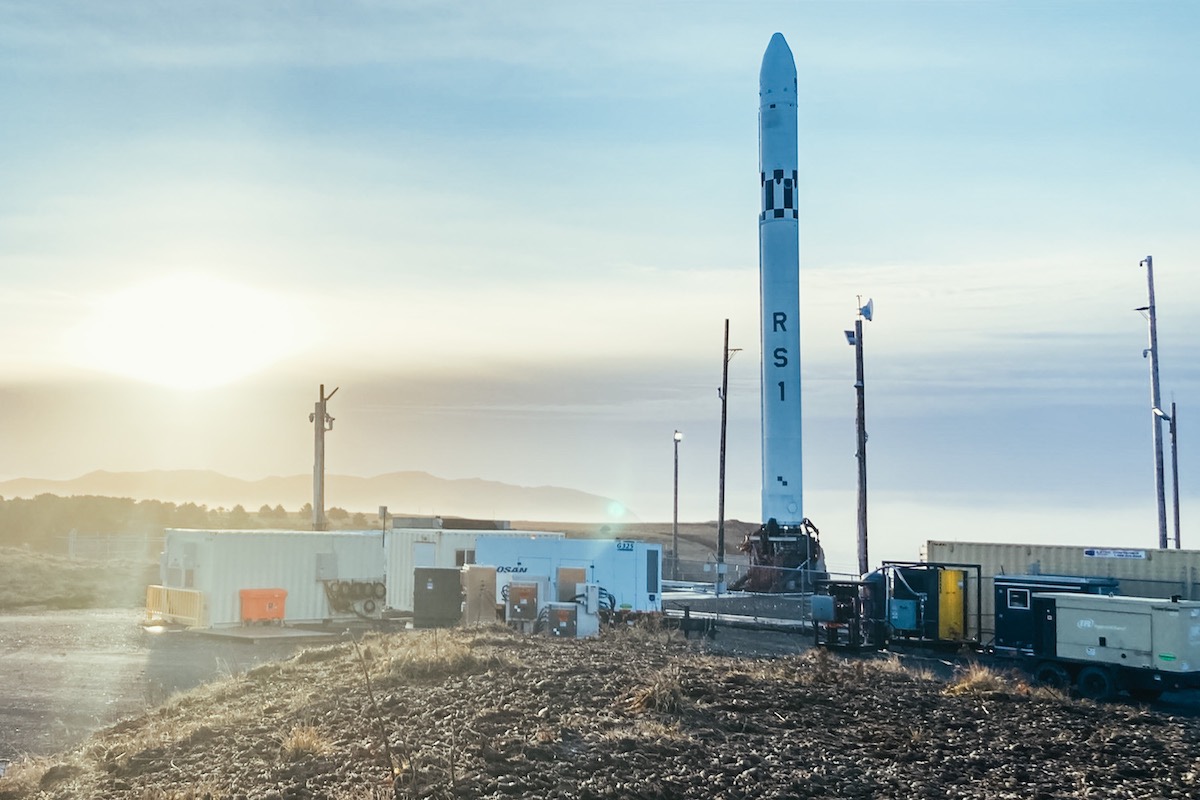Space News & Blog Articles
ABL’s first orbital test flight postponed after series of launch attempts
 ABL Space Systems’ RS1 rocket on its launch pad in Alaska. Credit: ABL Space Systems
ABL Space Systems’ RS1 rocket on its launch pad in Alaska. Credit: ABL Space Systems
The first test flight of ABL Space Systems’ new small satellite launcher from Alaska has been delayed until no earlier than December after technical issues cut short three launch attempts in the last week.
ABL conducted three countdowns during a week-long launch period at the Pacific Spaceport Complex on Kodiak Island, Alaska, to try to send aloft the company’s first RS1 rocket, an orbital-class launcher designed to haul payloads of more than one ton into low Earth orbit.
The RS1 rocket stands 88 feet (27 meters) tall, and is the newest in a line of privately-developed small satellite launchers. ABL aims to join Rocket Lab, Virgin Orbit, Firefly Aerospace, and Astra in a new generation of commercial companies that have successfully launched payloads into orbit. None of those companies successfully reached orbit on their first attempt.
ABL is not providing any publicly-accessible live video coverage for its first orbital launch attempt, but the company posted periodic updates on Twitter. A Nov. 14 launch attempt was scrubbed about 30 minutes before liftoff time due to unexpected data during propellant loading on the RS1’s first stage, later found to be caused by a leaking valve in the pressurization system.
A second launch attempt Nov. 17 was aborted at T-minus 1.8 seconds during ignition of its nine kerosene-fueled E2 first stage engines. ABL said that abort was triggered an issue with conditioning of liquid oxygen, the cryogenic oxidizer used on the RS1 rocket.
Another countdown Monday, Nov. 21, also aborted during engine startup sequence. That was the final launch attempt available to ABL until the company’s next series of launch dates begins Dec. 7.
In recent months, ABL teams at Kodiak have completed a static test-firing of the RS1 rocket’s first stage and a series of fuel loading demonstrations to prepare for the first test flight. The two-stage rocket is capable of placing a payload of nearly 3,000 pounds (1,350 kilograms) into a low-altitude equatorial orbit, or about 2,138 pounds (970 kilograms) into a 310-mile-high (500-kilometer) polar orbit, according to ABL.
The RS1 rocket’s lift capability puts it on the upper end of the range of new small satellite launch providers, slightly exceeding the performance of Firefly Aerospace’s Alpha rocket, which reached low Earth orbit on its second test flight Oct. 1 following launch from Vandenberg Space Force Base, California. Firefly’s Alpha rocket deployed its CubeSat payloads into a lower-than-expected orbit, and the small satellites soon re-entered the atmosphere.
Rocket Lab’s Electron booster, Virgin Orbit’s LauncherOne, and Astra’s Rocket 3 launch vehicle have smaller payload capacities. Astra has retired its Rocket 3 vehicle and is now developing a larger launcher called Rocket 4.
ABL says a dedicated launch on its RS1 rocket costs $12 million, more than the price of a Rocket Lab mission but below the price of a larger rocket such as SpaceX’s Falcon 9. The scale of the RS1 rocket is “small enough to simplify development, manufacturing, and operations, but large enough to deliver a per-satellite launch cost at a fraction of a smaller vehicle,” ABL says.
Founded in 2017, ABL is headquartered in El Segundo, California, and is backed by venture capital funds and money from Lockheed Martin. ABL reported a valuation of $2.4 billion last year during its most recent fundraising round, with a backlog of more than 75 missions, primarily from a bulk order of up to 58 launches from Lockheed Martin. ABL also has a contract to launch a NASA small satellite tech demo mission, and is one of 13 companies in NASA’s roster of providers for venture-class launch services.
The U.S. Space Force added ABL to its roster of 11 companies eligible to win contracts to launch the military’s small satellite payloads over a nine-year period.
For its first test flight, ABL’s RS1 rocket will fly south from Kodiak Island over the Pacific Ocean with two small shoebox-size CubeSats for OmniTeq, a Texas-based company that provides rideshare launch services with plans to deploy a constellation of small satellites to provide maritime communications services. ABL aims to release the two small satellites into a polar orbit.
This email address is being protected from spambots. You need JavaScript enabled to view it. the author.
Follow Stephen Clark on Twitter: @StephenClark1.
When you subscribe to the SpaceZE News Feed, we will send you an e-mail when there are new updates on the site so you wouldn't miss them.

